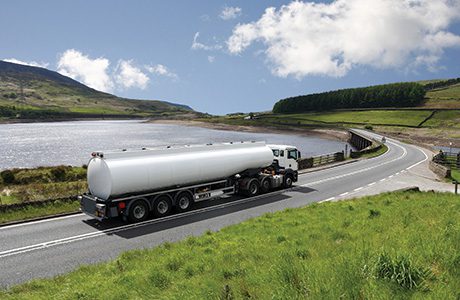Brian Madderson, chairman of the Petrol Retailers Association, discusses the issue of fair fuel pricing across the supply chain.

Fuel prices have made plenty of headlines this year, fluctuating dramatically amid falling oil prices and geopolitical turbulence.
By the end of September, an influx of low-priced imported diesel and an oversupply of petrol in the UK and Europe combined to send the average price of both plummeting to around 110ppl.
That’s been welcomed as good news for motorists, but the way prices are calculated throughout the supply chain has left many scratching their heads.

In recent months, the Petrol Retailers Association has detected sustained pressure for much greater transparency in the wholesale cost supply and pricing chain for retail fuels, according to chairman Brian Madderson.
This pressure has manifested itself politically, he said, in the establishment of a new all-party parliamentary group for fair fuels, dedicated to trying to better understand and improve fuel pricing.
“I’m going to meet with the chairman, Jason McCartney MP, but in the meantime I’m also meeting with Robert Halfon MP who has been a champion of fuel pricing at Westminster for some time,” said Madderson. “We think that PRA members would embrace a move to more transparency in the supply chain.”
Several things had come about to facilitate this, he said, not least HMRC’s consultation on vapour recovery charges, which was launched in June.
The consultation is focused on the Extra Statutory Concession (ESC) provided to suppliers on petrol vapour recovered during deliveries to service stations, which Madderson described as “unfair and unlawful”, benefiting suppliers at the expense of retailers.
HMRC is seeking views on whether it should legislate to place the existing scheme on a legal footing or introduce an alternative to address the issue within existing warehousing approval terms and conditions.
“When there are questions on this, most suppliers will say they have already built it into their supply pricing contract. We’re saying they can’t, because it’s our money and, what’s more, they’ve never told us this before and there’s absolutely no transparency about it,” said Madderson.
“We’re saying to HMRC that the system has got to be tax neutral and transparent so the supplier is forced on each and every delivery to show how much duty they’ve got as rebate and that is passed back to the retailer.”
Another issue affecting price transparency, he said, is that the delivery notes retailers receive are not accurate.
“First of all, the delivery notes should be in standard litres. It should be to actual product density rather than average and it should be measured volume. At the moment we’ve got the extraordinary situation whereby the dispensers on the forecourt are checked regularly for calibration and performance by Trading Standards, to make sure that the retailer is not shorting supply to the consumer. However, the metres at the terminal – nobody checks those at all.
“So I think the overarching drive now is to bring the whole supply industry into the 21st century. We need a fair, transparent and level playing field for everyone.”


















